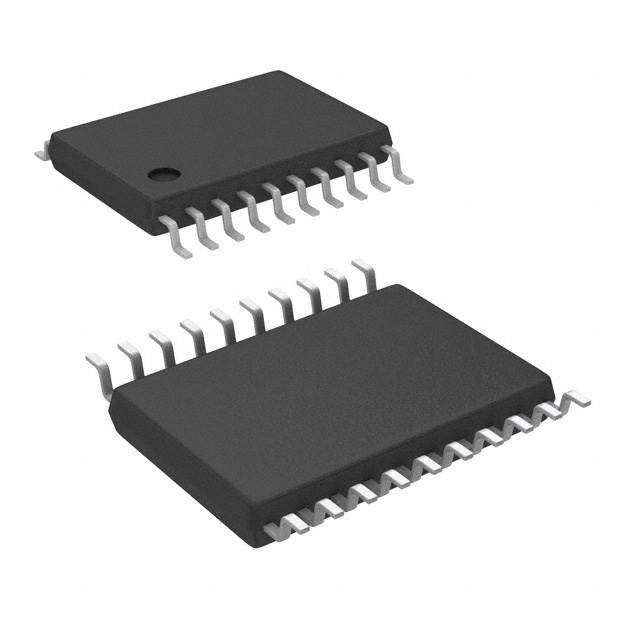74LV377PW,118
Manufacturer No:
74LV377PW,118
Manufacturer:
Description:
IC FF D-TYPE SNGL 8BIT 20TSSOP
Datasheet:
Delivery:





Payment:




In Stock : 0
Please send RFQ , we will respond immediately.









74LV377PW,118 Specifications
-
TypeParameter
-
Package / Case20-TSSOP (0.173", 4.40mm Width)
-
Supplier Device Package20-TSSOP
-
Mounting TypeSurface Mount
-
Operating Temperature-40°C ~ 125°C (TA)
-
Input Capacitance3.5 pF
-
Current - Quiescent (Iq)160 µA
-
Voltage - Supply1V ~ 3.6V
-
Current - Output High, Low6mA, 6mA
-
Trigger TypePositive Edge
-
Max Propagation Delay @ V, Max CL30ns @ 3.3V, 50pF
-
Clock Frequency70 MHz
-
Number of Bits per Element8
-
Number of Elements1
-
Output TypeNon-Inverted
-
TypeD-Type
-
FunctionStandard
-
PackagingBulk
-
PackagingTape & Reel (TR)
-
Product StatusObsolete
-
Series74LV
The 74LV377PW,118 is a specific integrated circuit (IC) chip, commonly known as a flip-flop. It has several advantages and application scenarios:Advantages: 1. Low-voltage operation: The "LV" in the part number indicates that the chip operates at low voltage, typically around 3.3V. This makes it suitable for use in low-power applications and battery-operated devices. 2. High-speed operation: The chip is designed to operate at high speeds, making it suitable for applications that require fast data processing and signal switching. 3. Compact size: The chip is available in a small package, which makes it suitable for use in space-constrained designs.Application Scenarios: 1. Digital electronics: The 74LV377PW,118 chip is commonly used in digital electronics circuits, such as counters, registers, and data storage applications. It can be used to store and manipulate binary data, making it useful in various digital systems. 2. Communication systems: The chip can be used in communication systems, such as data transmission and reception circuits. It can help in buffering and synchronizing data signals, ensuring reliable communication between different components. 3. Microcontrollers and microprocessors: The flip-flop chip can be used in conjunction with microcontrollers or microprocessors to implement various functions, such as state machines, data storage, and synchronization.It's important to note that the specific application of the 74LV377PW,118 chip may vary depending on the requirements of the project and the overall system design. It's always recommended to consult the datasheet and relevant technical documentation for detailed information on its features and usage guidelines.
74LV377PW,118 Relevant information







